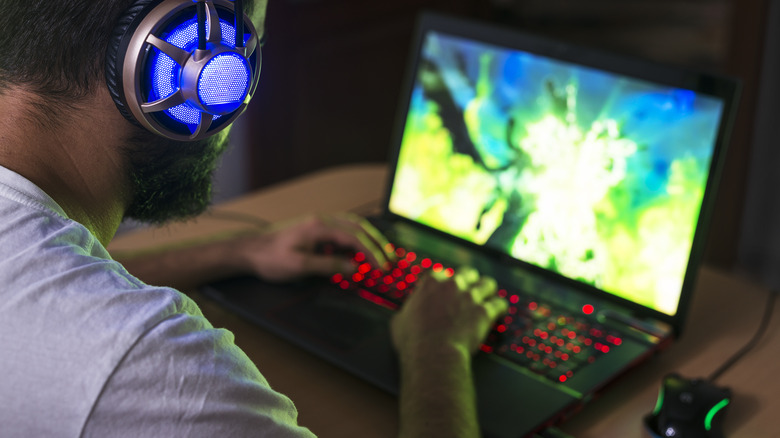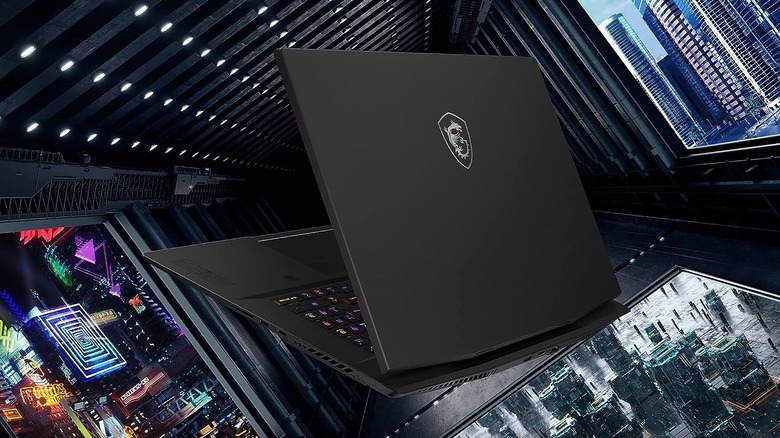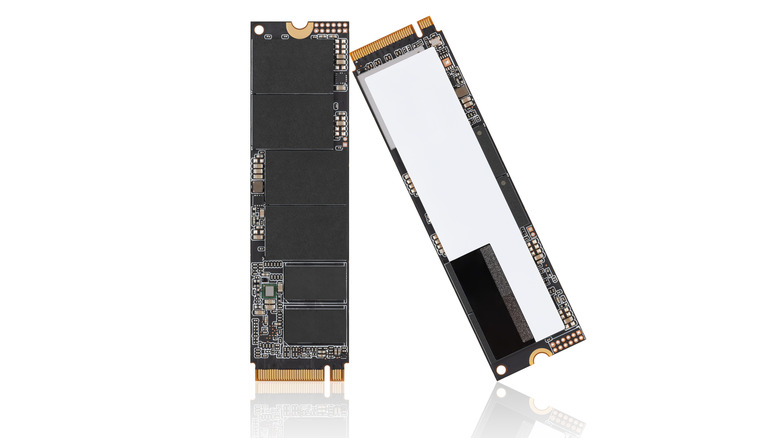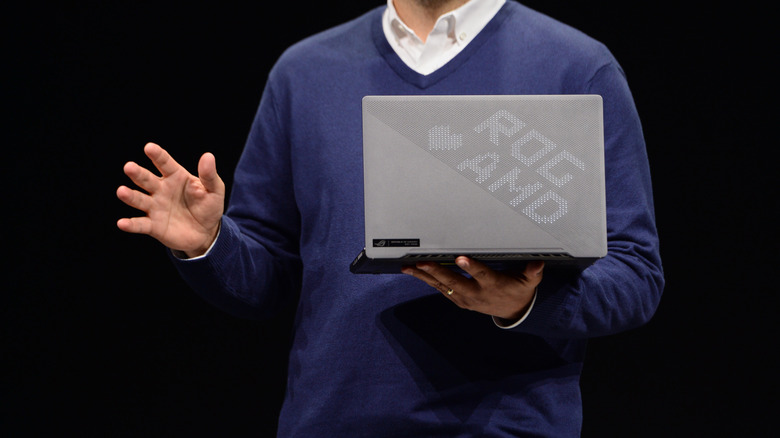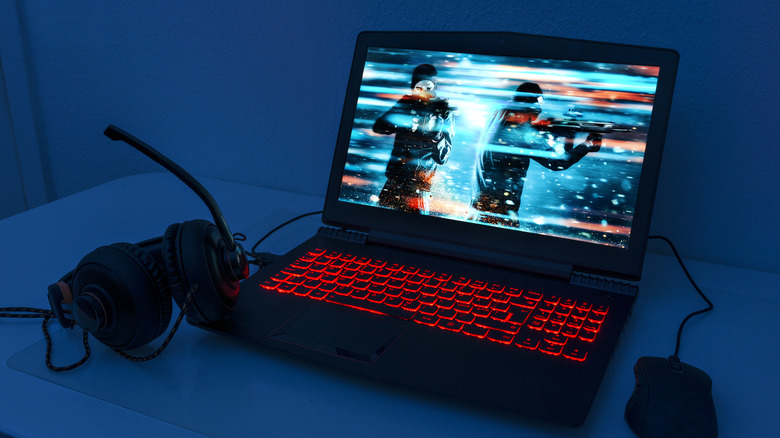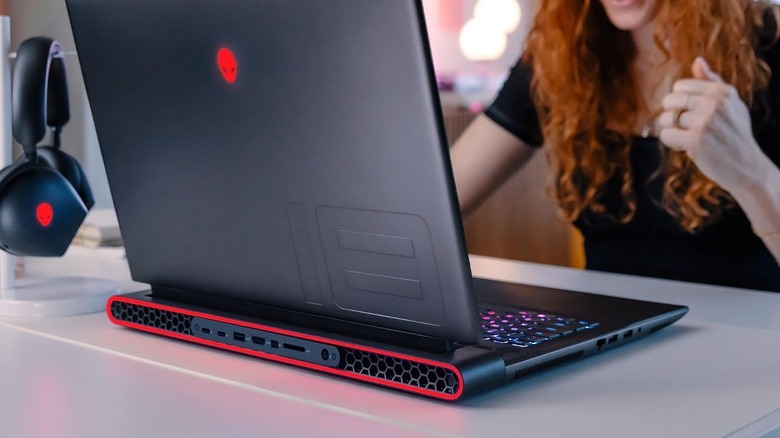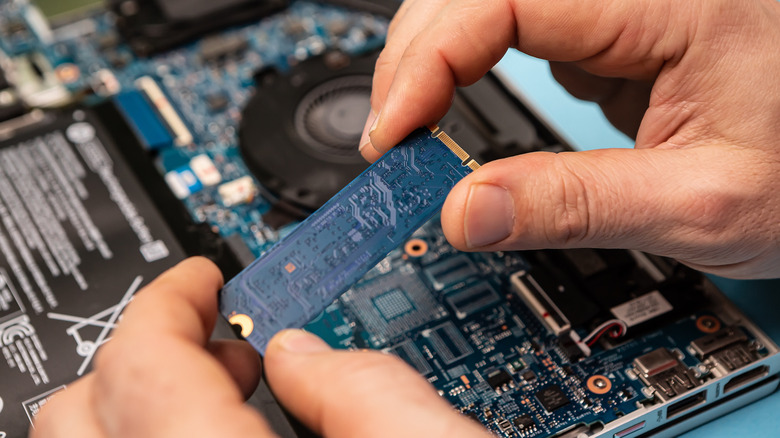How To Choose The Right Gaming Laptop For You In 2024
Purchasing a gaming laptop in 2024 can feel like a stab in the dark. Portable Windows gaming rigs have come a long way, and there's more variety than ever before. But with all that choice can come a sense of paralysis. Things like GPU, CPU, RTX, RGB, and other three-letter acronyms melt together until you can barely comprehend the differences. How can you sort through the noise to make the right choice with your hard-earned dollars?
The first step to choosing a gaming laptop is to find a way to step above the noise. There are so many options on the market in 2024 that, if you simply spend some time organizing your buying priorities, you're nearly guaranteed to make a choice that satisfies your needs. That's why this guide is focused on giving you the information needed to make an informed decision.
Everyone is unique, and your laptop should fit your lifestyle. So, while this guide references a few different gaming laptop models throughout, it isn't designed to make specific recommendations. For that, you can check out our list of the most powerful gaming laptops of 2023 and other sources from around the web. Instead, this guide is designed to help you make sense of the gaming laptop landscape, so you can come to your own conclusions about which is the best for your individualized needs.
Getting a good GPU is important
If you're in the market for a new gaming laptop, you're probably aware that the key difference between a gaming laptop and a regular laptop is that the former has a dedicated graphics card. Simply put, the GPU (graphics processing unit) is the component that processes and renders graphics, especially the 3D graphics that games rely on. Because of that, it is arguably the single most important component of a gaming laptop.
When shopping for a gaming laptop, it's important to be aware which GPUs are considered the best. High-end GPUs will help the most demanding games to perform at their best, while a lower tier GPU will struggle to perform with a large variety of games. As of this writing, the dominant GPU company is Nvidia, and its GeForce line of graphics cards are typically considered the best on the market. The best cards Nvidia makes are its GeForce RTX 40 series, with the RTX 4090 being the most premium model. Most recently, Nvidia announced Super versions of the RTX 40 series. AMD also makes GPUs, and its Radeon series of graphics cards have received praise in recent years, including from SlashGear.
If you're struggling to pick between an Nvidia and AMD GPU, one more thing to consider is that, because Nvidia cards are the most popular, many games tend to be better optimized for them. Game developers are more likely to pay attention to how well their games run on the latest Nvidia cards, since that's how most PC gamers will experience them. Like most rules of thumb when it comes to computer gaming hardware, that's not true across the board. But it does demonstrate Nvidia's current dominance in the GPU space.
Storage matters more than ever
One spec you should pay close attention to when shopping for a new gaming PC in 2024 is its storage capacity. As games continue to get better, they also get bigger, and if you don't have enough storage, you'll constantly find yourself needing to delete old games to make room for new ones. Even a terabyte of storage might not cut it, since games like "Call of Duty: Modern Warfare III" can balloon to nearly 300GB with all of the expansions installed. You'll be lucky to fit more than a handful of AAA games on a 1TB drive, especially when you factor in other files you might want on your computer, such as movies, music libraries, or other apps. At time of writing, we recommend 1TB as a starting point, with 2TB being the sweet spot.
If you cannot afford to buy a laptop with tons of storage, make sure you're getting one that can easily be upgraded so you can add an additional drive later. Ideally, upgrading your internals should be as simple as unscrewing the backplate and popping in a new storage stick. Steer far away from any laptop that makes simple upgrades to storage and RAM a pain in the rear. If you end up needing those upgrades, you don't want to be forced to buy an entirely new laptop rather than simply being able to add more RAM and storage.
Size matters less than ever
You've probably heard before that size doesn't matter, and it's more true now than in the past. When shopping for a gaming laptop, the rule of thumb has been that bigger is better. Chunkier machines with large chassis have more room for beefier hardware and better cooling systems to eke out performance from those components. In 2024, however, things are different. Bigger machines still tend to be better than smaller ones, but smaller ones have become far more capable than you might expect. For those who plan on taking a gaming laptop on the go, or who plan to use it as an all-around productivity machine, it is now possible to get eyebrow-raising gaming performance out of a laptop small enough to fit comfortably in most backpacks.
That dichotomy is perfectly illustrated by ASUS's lineup of ROG gaming laptops. When choosing my personal laptop, I opted for the company's monstrously large ROG Strix Scar 17. It's a powerhouse of performance that easily supports competitive gaming to video editing without breaking a sweat, but it's so big that I was forced to buy a new backpack to lug it around. Meanwhile, my partner sprung for the much more compact ROG Zephyrus G14, a comparatively svelte package roughly the same size as the newest MacBook Pro. They paid less than half what I did, got a device with a lot more portability, and yet we both play the same games with almost no issues.
For you, the increasing performance of smaller laptops means it's easier to choose the laptop size that's best for you rather than simply buying a bigger one for the sake of the spec sheet. Gamers no longer need to be the person pulling what looks like military hardware out of a backpack.
Find a screen you won't mind staring at
Once you've honed in on the specifications you want contained in the guts of your laptop, you should consider the display all those internals will be pushing pixels on. After all, laptop displays are built in, so there's no upgrading them later on. You might have the beefiest GPU paired with a blazing fast CPU, but if the display can't keep up, none of that will really matter.
When choosing the type of screen you want, consider the environments in which you'll be using the laptop, along with the kinds of games or apps you'll be running. If you plan to bring your shiny, new machine on the go to coffee shops or other places with unpredictable lighting, you may want to consider an IPS display, which are known for their matte finishes that help reduce glare. They're also among the most reliable and affordable types of displays. However, if you're going to mostly be using the laptop in an environment where you have complete control over your lighting, an OLED display panel might be a better option due to its better contrast and sharpness.
You may question whether you should spring for a 4K display, but that's generally not recommended unless you're purchasing a laptop with a high-end GPU that will be able to render games at high resolutions. Refresh rates matter just as much, if not more than, resolution for gaming, so if you're choosing between a 4K display and one that can reach high refresh rates of 120Hz and above, it's generally a safer choice to prioritize frames per-second.
Pay attention to I/O
It's not all about raw power when shopping for a gaming laptop. It's also about how the laptop fits into your setup. In a world where typical laptops have nearly eradicated ports in favor of a few USB-C connectors and a tangle of dongles, gaming laptops remain the last bastion of advanced port selection. That's why it's important to make sure the laptop you buy has enough I/O. You don't want to take home your dream laptop, only to realize that it doesn't support your DisplayPort monitor, or that it's incompatible with your Thunderbolt USB hub.
When shopping for a gaming laptop, consider each of the devices you're likely to plug into it. Will you be using an external mouse or keyboard? What about a controller? And, of course, think about the stuff that isn't always connected, such as USB flash storage devices, smartphones, or headphones/headsets. Additionally, it's not uncommon for high-end gaming laptops to come without a built-in webcam, which you'll also need to connect as a peripheral.
As with other aspects of choosing a gaming laptop, you'll want to shop according to your needs. Are your USB devices mostly type-C, or do you have some old fashioned USB-A cords in the mix? Do you plan on connecting directly to LAN for improved network performance while playing online games? In that case, look for a LAN port. And will you be using a secondary monitor? If so, make sure you purchase a laptop with an HDMI output.
Repairability will save you money in the long run
Coming back to a point that was touched on above regarding storage, and ability to be repaired or upgraded should factor into your choice of gaming laptop. In a world where companies often manufacture devices in such a way as to hinder the user's ability to upgrade or repair them later, thereby forcing consumers to purchase a brand new laptop the moment anything breaks, it's more crucial than ever to find a device that lets you open it up and swap out parts with ease.
According to device repair company iFixit, which keeps a database of repairability scores for phones and laptops, the brand with the most consistently upgradable laptops is HP. However, its database does not contain many gaming laptops, so it's unclear whether that extends to HP's Omen line of gaming laptops.
To determine whether the laptop you're considering is repair and upgrade friendly, it can be helpful to search for a teardown guide for that specific model. There are YouTube channels such as Laptop Media that are dedicated to showing the process of opening up various laptops, which can help give you a sense of whether or not it will be easy to repair yourself. At a bare minimum, you should make sure that upgrading the laptop's RAM and storage is a painless process. Any further upgradability beyond that is, of course, welcome.
